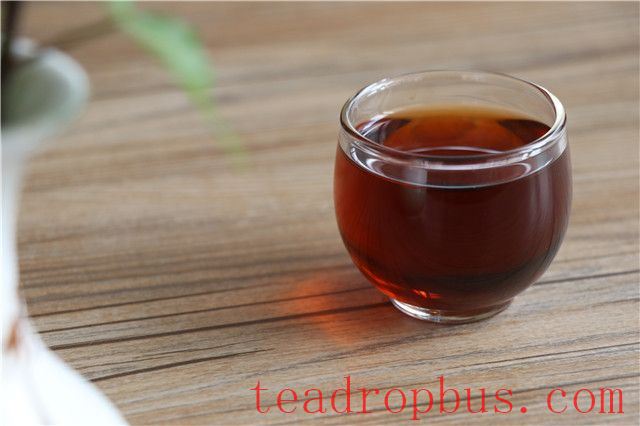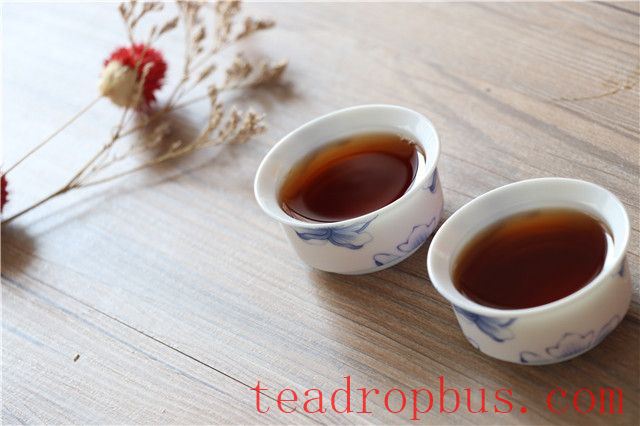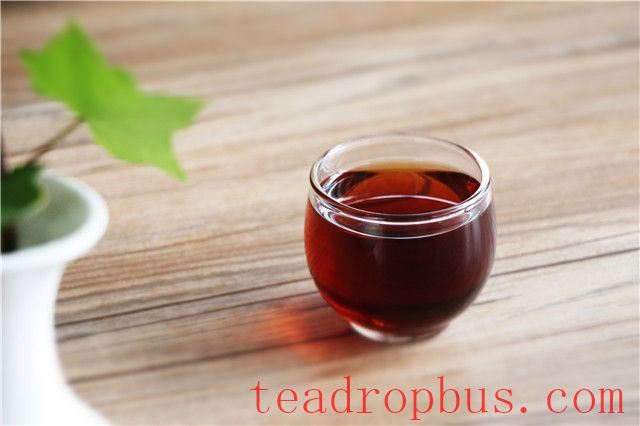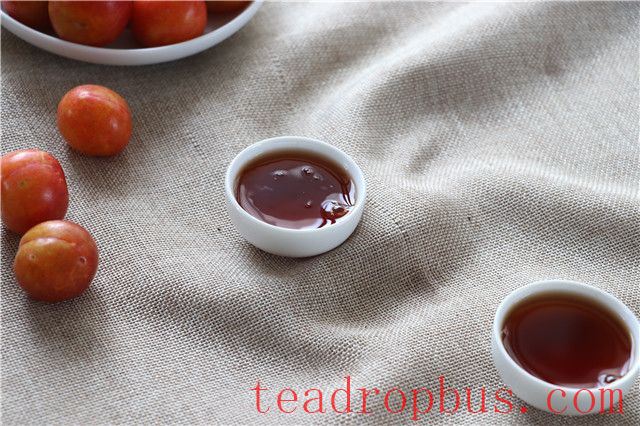Pu'er ripened Tea comes in two forms: loose tea and Compressed tea. Loose tea is divided into special grade and grades one through ten, as well as off-grade tea. Compressed teas include cake tea, brick tea, tuocha, pillar tea, golden melon tea, head-shaped tea, etc. Currently, the quality of Pu'er tea on the market varies greatly, so consumers should be careful when purchasing. Here's a simple introduction to how to appreciate Pu'er ripened tea.

How to Appreciate Pu'er Ripened Tea
1. Thickness
The thickness of ripened Pu'er provides a very comfortable sensation. When the tea soup glides into your mouth and stimulates your taste buds, swirl it around with your tongue. Feel the force of swirling and the impact on your palate, and you'll fully experience its fullness and richness, which can also be understood as a kind of viscosity.
Thickness is not the same as the concentration of the tea soup. Thickness is related to the quality of the Pu'er tea. When there are more dissolved substances in the water at a certain strength, the mouthfeel will be thicker and denser.

2. Silky Smoothness
Silky smoothness refers to the “oily” feel of ripened tea, similar to drinking chicken soup or rice soup. Typically, very smooth teas leave a feeling of having “left a layer of oil.” This needs to be distinguished from the “easy to swallow because there's no bitterness or astringency” feeling.
In fact, the silky smoothness is also related to the thickness of the tea soup. The richer and thicker the tea soup, the more noticeable the smoothness will be. When the tea soup enters your mouth and pauses for a moment before flowing down your throat to your stomach, it feels very smooth, natural, and comforting, leaving a strong impression on the taster. Conversely, low-quality tea can have a “throat-locking” sensation.
3. Moistness
Good Pu'er ripened tea immediately soothes the throat upon entry, alleviating any dryness. Experienced tea connoisseurs place great importance on this characteristic of throat moistness. This moistness is essential for ripened Pu'er. High-quality ripened Pu'er should leave the drinker feeling as if they've been warmed by jade or bathed in a spring breeze.

After three or four infusions, the ripened tea soup leaves the throat feeling fresh and moisturized, the mouth neither dry nor parched. Swallowing the tea warms the entire abdomen comfortably—this is the manifestation of the moistness of ripened tea.
4. Sweetness
Sweetness is perhaps the simplest and most direct aspect to evaluate in ripened tea. A good ripened tea will emit a sweet aroma even before tasting. Moreover, since ripened tea has almost no bitterness or astringency, the sweetness becomes even more prominent! Upon contact with the tongue, the sweetness can be quickly felt and will spread throughout the mouth, lingering for a long time.
5. Purity
Purity is an important indicator of the skillfulness of the fermentation process in ripened tea. Whether the fermentation environment is hygienic, the methods used are correct, the degree of fermentation is appropriate, and whether storage conditions are ideal can all be evaluated based on the purity of the tea soup.
Teas with high purity taste very clean and comfortable. Even those who do not particularly prefer ripened tea will find them easy to enjoy. If the tea tastes off, it indicates that hygiene standards were not met during production or that the tea was contaminated during later storage.

6. Aroma
Different raw materials and blending methods can bring about different aromas, one of the charms of ripened tea. The pile-fermentation process can give new ripened teas some “pile-fermentation flavor,” which is unavoidable. However, skilled techniques and strict production processes can reduce this smell to a certain extent. After two to three years of aging, the pile-fermentation flavor will fade, revealing a fuller and rounder taste.
Earthiness is the basic aroma of ripened tea. If stored properly, ripened tea that has undergone over five years of aging will further develop into more complex aromas, such as camphor, ginseng, medicinal, jujube, aged, woody, etc. However, this is determined by the quality of the tea, storage conditions, and the passage of time. In other words, if the raw material of a tea cake is poor to begin with, no amount of aging will result in a pleasant surprise.
Good ripened tea speaks for itself. In the antique trade, there is a term called “Daikaimen,” meaning that the true aura of genuine antiques can be felt at first glance, without the need for strenuous authentication. It's the same with tea; the physical and mental sensations of good tea do not require elaborate descriptions. It's a realm of harmony between heaven and man, body and mind.